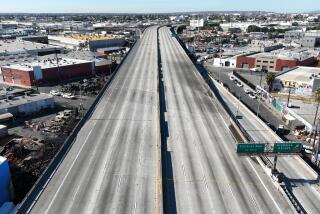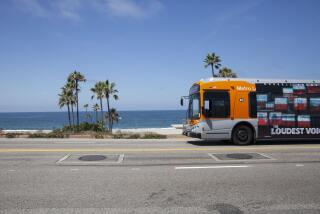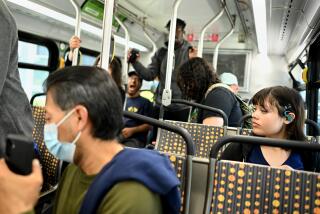Rethink Transit Vs. Auto Debate
* Robert Krol got it half-right in his Commentary article (Aug. 15). We definitely need congestion pricing on our highways, as he proposes.
But his dismissal of transit alternatives was shortsighted. It seems that he accepts the conventional wisdom that transit’s declining market share is pure market rejection.
This decline is due to heavy subsidization of the auto, putting transit at a disadvantage.
According to separate studies conducted by the Worldwatch Institute and the World Resources Institute, the annual subsidy for autos and trucks in the United States, net of all user fees, is $300 billion. Other researchers have pegged this subsidy at higher levels when factoring in many intangible costs. Many other public policies further favor the auto over transit.
Congestion pricing could help balance the playing field. Transit market share would begin to grow again.
There are many other reasons why it is not prudent public policy to rely almost exclusively on one mode, the auto, as Mr. Krol seems to suggest.
Almost half of the population do not possess drivers’ licenses or have access to an auto. Auto dependence requires sprawl, which has numerous economic and environmental consequences. Many people drive not because they want to but because they have to.
However, current levels of transit service are inadequate to be attractive alternatives in many markets and to absorb the additional demand congestion pricing would create. We need new rail lines and greatly expanded bus service.
Transit ridership grew during the 1980s despite cutbacks, although auto travel grew much faster. In individual markets where transit service was improved, transit ridership grew dramatically.
There is no single solution to our transportation mess. Rather, several concepts working in concert such as congestion pricing and improved transit are the way to “reduce business costs, increase employment, raise revenues and make Los Angeles a better place to live” as Mr. Krol says.
JOE CARDOZA
Santa Clarita
More to Read
Sign up for Essential California
The most important California stories and recommendations in your inbox every morning.
You may occasionally receive promotional content from the Los Angeles Times.










